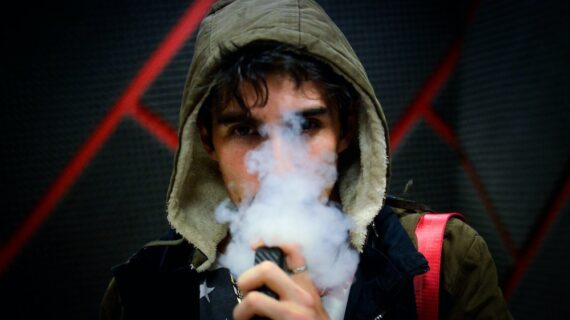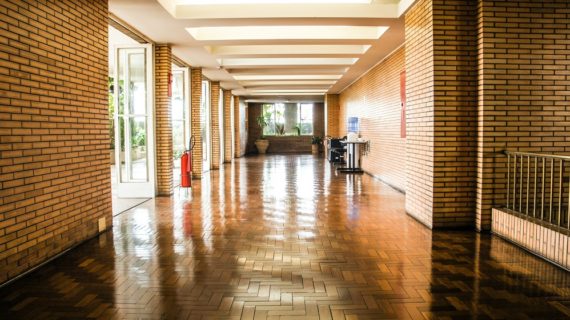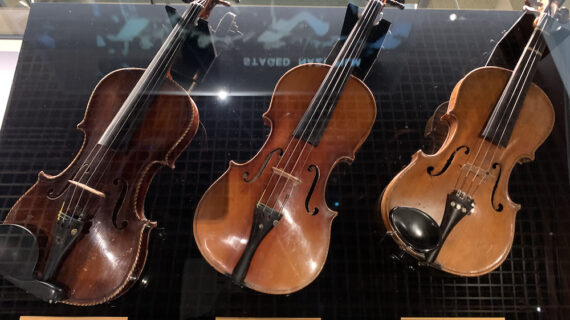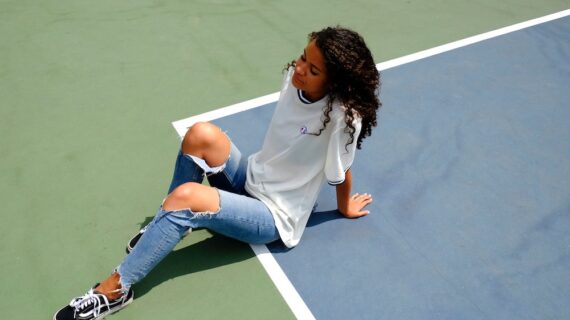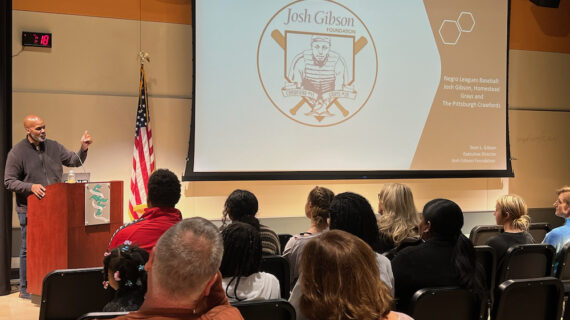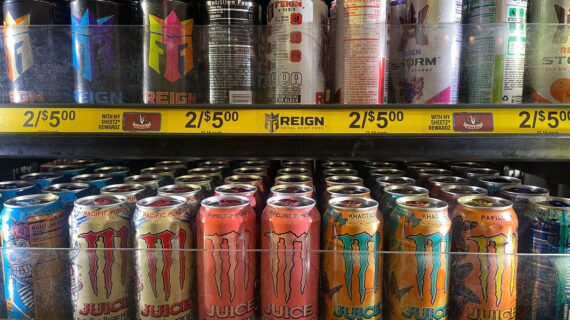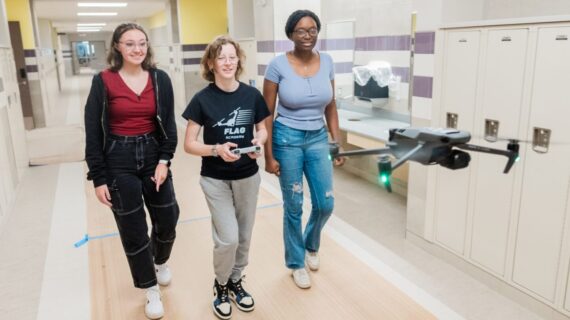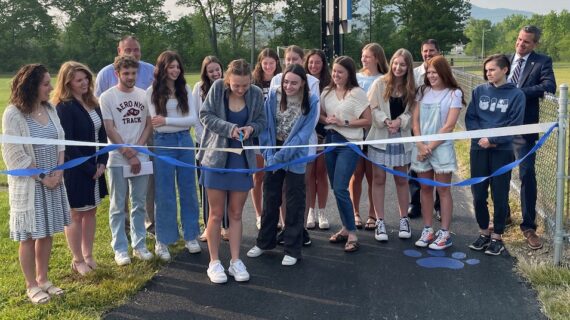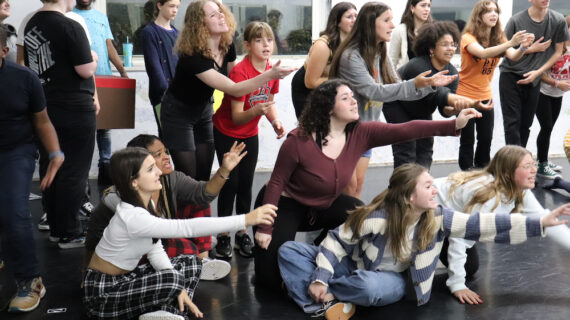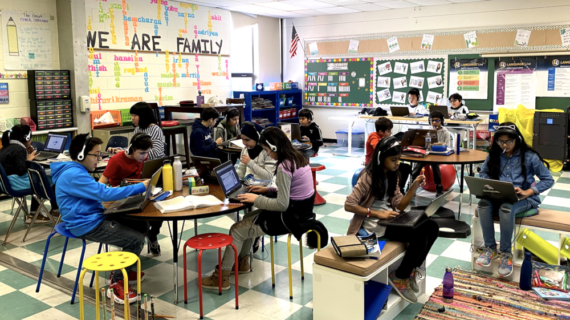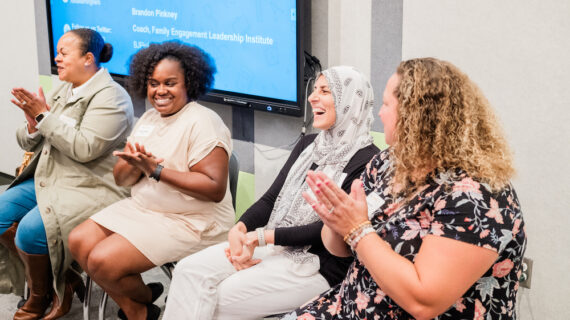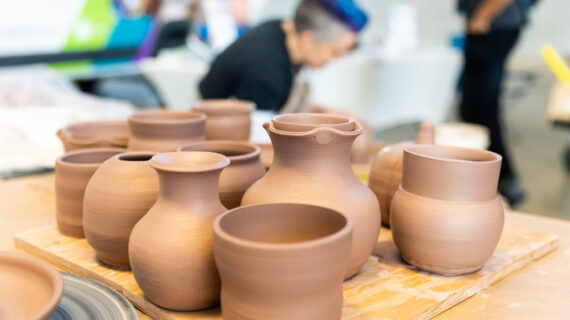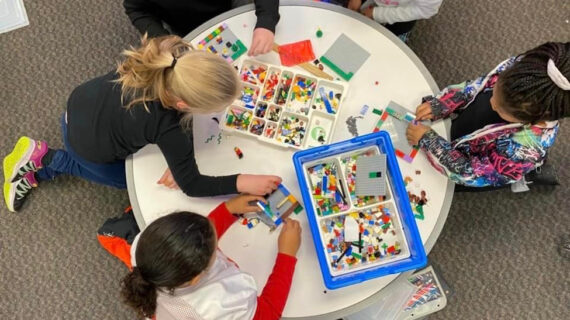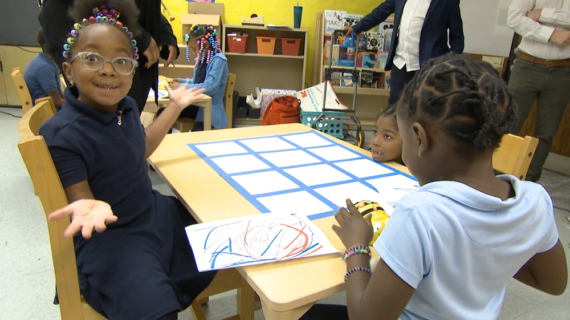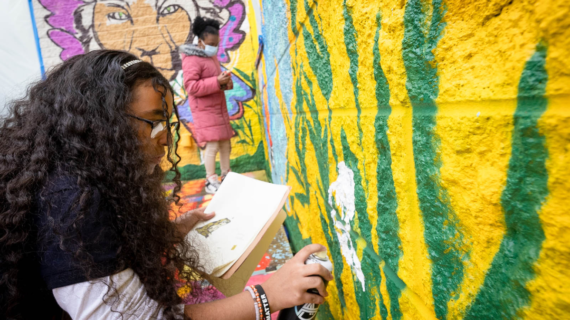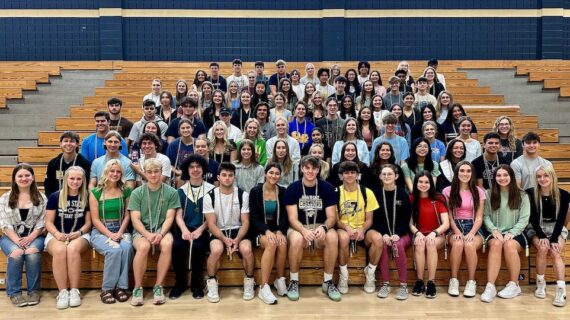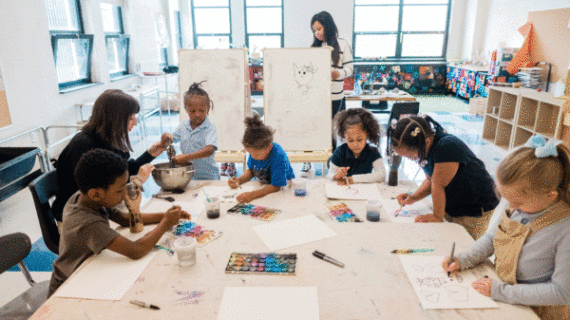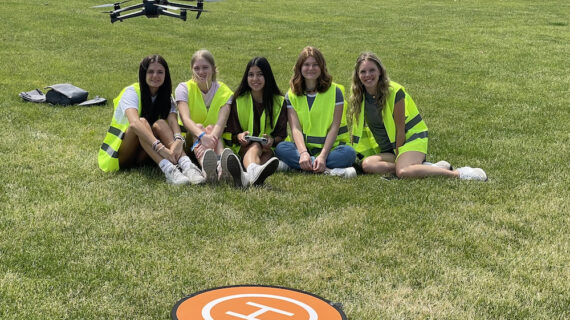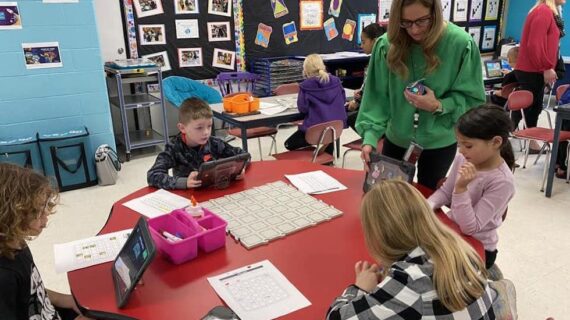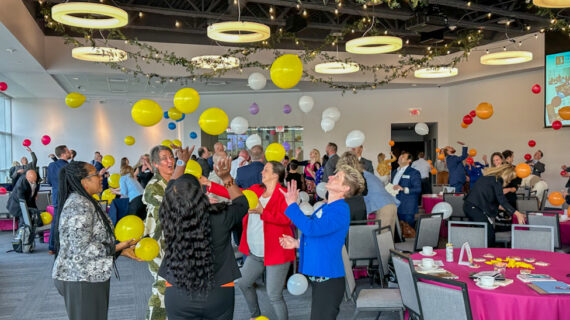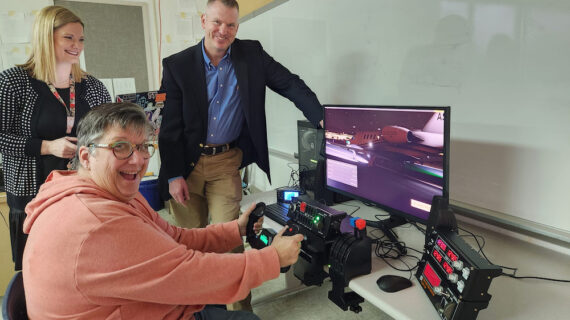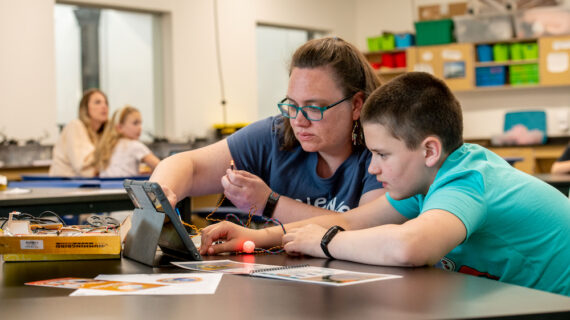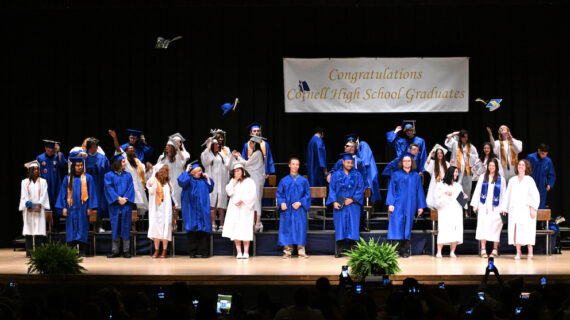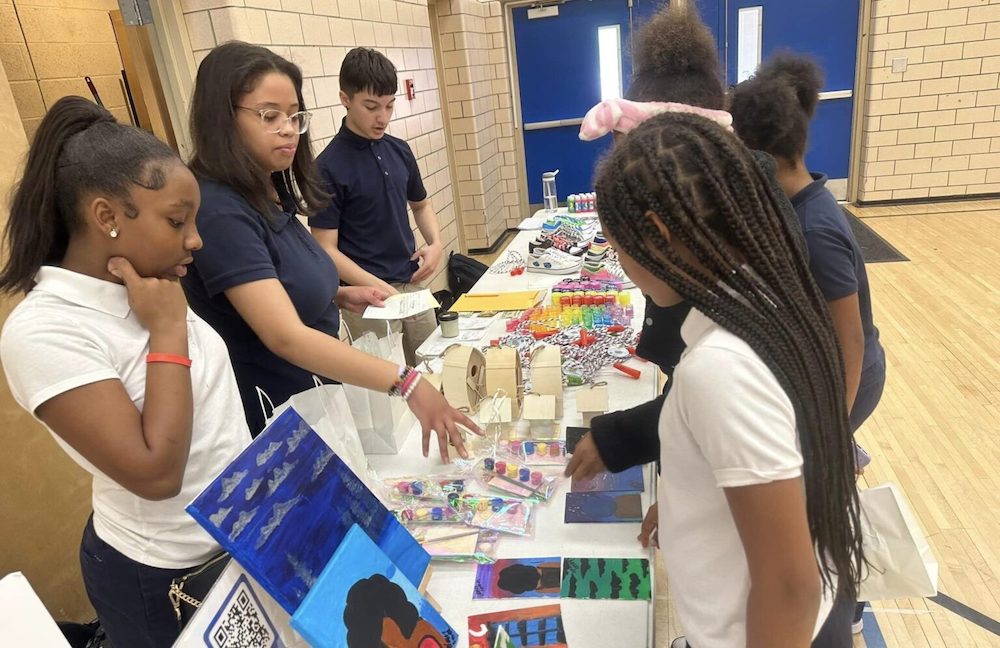
Microsocieties and much more: Entrepreneurship education is inspiring kids throughout SWPA
Debra Titus often gets approached by entrepreneurs. Some days, it happens during a momentary break, while she’s filling up her cafeteria lunch tray. Eager young businesspeople stand three deep asking for the chance to pitch their products and services.
Recently, Titus spoke with a young woman who is building an impressive side hustle making lip gloss from natural ingredients. After learning about everything from manufacturing to marketing, she felt ready to launch her business.
“E-mail me,” Titus told this hard-working entrepreneur. “I’d love to hear more about your idea.”
The lip gloss maker said thanks, then hurried back to her current full-time job: being a third grader.
Entrepreneurship Starts Early
Welcome to Soarmania, the “MicroSociety” that exists inside Penn Hills Charter School for Entrepreneurship, where Titus serves as the school’s entrepreneurial education coach.
Since 2011, this K-through-8 school has partnered with the folks at MicroSociety, Inc., to use entrepreneurial education to teach kids about planning, launching and managing businesses — and teach citizenship, humanities and service along the way. Throughout the school day, science, math, social studies, and English language arts learning all incorporate entrepreneurial concepts in different ways.
Within the MicroSociety model, kids in kindergarten through sixth grade function as one country, Soarmania. Each grade is its own state with a governor. Each classroom has a mayor. And the country elects a president, vice president and speaker of the house.
Each student functions as a citizen with rights – and responsibilities.
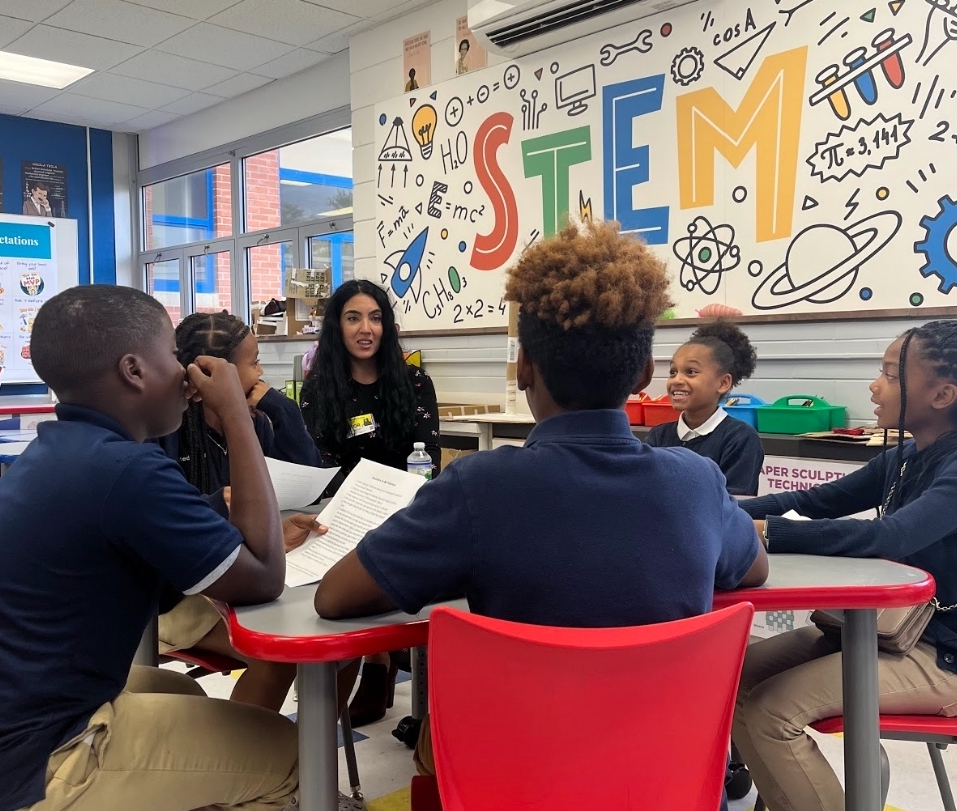
“Citizens learn to write business plans,” explains Nina Tortorice, the school’s MicroSociety coordinator, “and they can submit them for approval.”
If a business is approved, those students then begin hiring other students in grades 1-6 to work at their business. They don’t just pick their friends: Prospective employees are taught through mock job interviews, then receive an offer letter and get hired.
This year, even kindergarteners got involved: They were given internships. Nearly every day of the week, the citizens of Soarmania go to work from 2 p.m. to 3 p.m. The kindergarten-age interns are gently shepherded to the classrooms where they work, and sixth graders help them learn about possible jobs.
The citizens of Soarmania are busy people. In one classroom, a group at a robotics business might be learning to code. As their skills grow, they take on the job of teaching other young “citizens” to code. Others work in the art center, custom printing posters or making commissioned paintings. Some citizens run the student cafe; others are busy in the school’s Big Idea Center (modeled on a similar space at Pitt) teaching fellow citizens the art of podcasting, and others run their own nonprofit organizations.
These experiences don’t just build inspiration and experience for future careers. They also help make academic learning more impactful. Kids might learn a math concept in the morning, then use it when they go to work in the afternoon. They might learn how to write a letter in English class, then use those skills to send work emails or apply for a new job.
Through real-life application of academic concepts, students discover “why their day to day lessons are so important for them,” says Penn Hills Charter School principal Jessica Zuk.
A Place Where Students Can Thrive
Tortorice says the Penn Hills team sees the impact of this approach every day. She sees so many students thrive in the MicroSociety – including, recently, one second-grader who hadn’t been sure where he wanted to work when the school year began.
“He found his home in Vex Robotics,” Tortorice says, and he recently mentioned that he loves coming to school but really loves going to work – and wants to be an engineer when he grows up.
“They are finding their passion through what they’re doing,” Tortorice says. “And yes, that passion might change. But it’s just really great to see all the citizens kind of coming into their own and learning new careers and different aspects of the jobs that they’re doing.”
There are opportunities for everyone, Titus says: “Each business, each venture, has a bookkeeper. There is a marketing department, a bookkeeper, and web developers building out their own websites. So there’s a lot of moving pieces.”
Students also prepare for entrepreneurial pitch competitions like those run by Startable, BUILD and by the school itself.
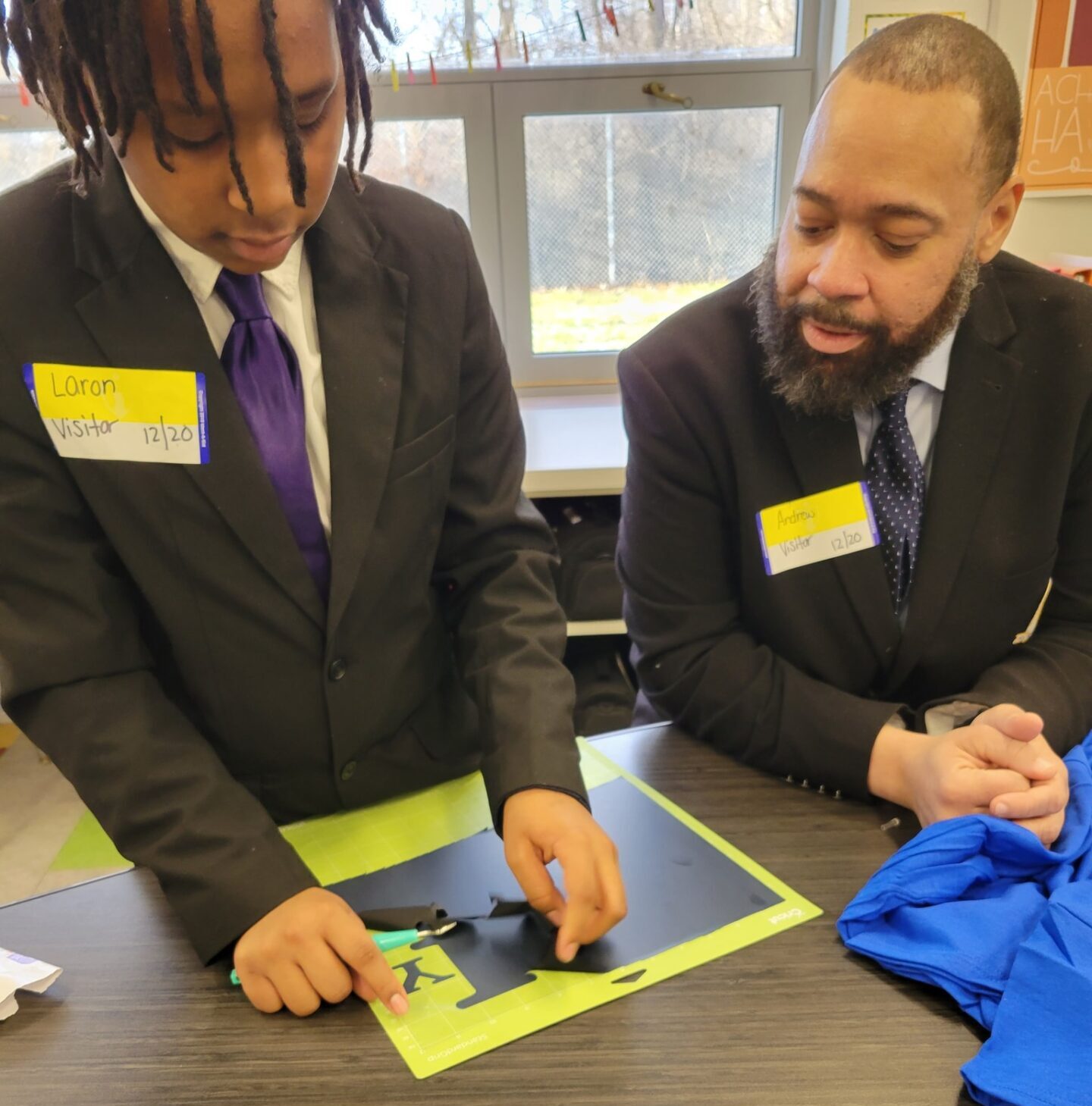
Dr. Wayne Jones, the school’s CEO, has seen seventh and eighth graders excel at these competitions. On recent visits to high schools that use an entrepreneurial curriculum, he found that his school’s seventh and eighth graders were better prepared and more confident pitching ideas than students several years older.
Dr. Jones has been impressed by his students’ ability “to present their ideas amongst their peers with conviction, courage and excitement,” he says, “even in comparison to the graduate students [I teach] at Duquesne University.”
Taking the Next Real-World Step
Along with entering competitions, students at Penn Hills Charter School can sell their products online through a Soarmania site hosted by Real World Scholars. Through a jury process, Real World Scholars confirms the quality of the product and ensures that photos and description are accurate. If a product is accepted, that young entrepreneur is truly in business.
But Penn Hills Charter School students aren’t the only Pittsburgh-area kids running real world businesses through Real World Scholars.
In the Fab Labs at Intermediate Unit 1’s campuses at Waynesburg, McMurray and Redstone, students in Real World Scholars’ EdCorps program learn manufacturing skills and the soft skills of entrepreneurship. Real World Scholars created EdCorps in partnership with Harbor Freight’s nonprofit Tools for Schools to focus on the skilled trades.
Twice a week, says teacher Kevin McKee, “we get into what we want to make in the lab using some of the software and machines that the students are familiar with. What products are feasible as far as shipping and how are we going to ship? How are we going to package them?”
The process is student-driven: “We’re kind of facilitating what’s happening and asking some questions, but the kids are solving those problems.”
The EdCorps program breaks down the process of planning a business, creating a good product and running a business. Students discover just how much goes into each decision – how to lower production costs, how best to price an item, how to streamline production, how to market their wares. They learn that even things like shipping can be complicated and business owners need to ensure nothing is damaged and shipping costs don’t swallow up potential profits.
McKee and teacher John Kopp have access to tools on an EdCorps dashboard. But students aren’t locked into creating specific products. They see what sells well on the Real World Scholars e-commerce site and they consider the challenges of making one product versus another. They have space to consider which products they really enjoy making.
These experiences may lead to future jobs.
“Our schools are special education schools. So the kids are here for many different reasons. … We just want to prepare them as much as possible for life after our program,” Kopp says. “We have a good connection with the local vo-tech school. Some of our kids may end up taking a tour down there and starting something there.”
But Kopp and McKee both say the program’s value goes way beyond teaching the nuts and bolts of business ownership and pointing kids toward viable career paths. As students are given the space and respect to succeed at their EdCorps businesses, they build confidence.
They also take ownership of their learning and their work in ways that might not happen with a conventional curriculum. Kopp cites one Waynesburg student who slowly began making sure her work in the Fab Lab was precise and high-quality. Over time, other students in her group began to notice and respect her precision. They relied on her for the finishing work and quality control for their products. Her ethos spread through the whole cohort.
Overcoming Challenges and Becoming Savvy
At entrepreneurship competitions, even students who face academic and mental health challenges have found themselves embracing their roles as entrepreneurs.
Many of the special education students in the program struggle with self-esteem, Kopp says, “and it takes them a while to get used to people.” But when the EdCorps group brings these students to in-person events, “they’re there talking to people they’ve never met before, which is amazing for most of our student population to be able to do that.”
Emily Donato, senior program manager at BUILD, calls these moments at competitions “the best part of my job.”
BUILD’s curriculum, which uses human-centered design to teach entrepreneurship, is project-based and easily adapted to any circumstances. “We have teachers who are teaching it as its own elective every day,” Donato says. “And we have teachers who are incorporating it into other classrooms, where they are teaching a specific subject matter and then BUILD is kind of on top of that.”
Some schools simply use BUILD’s streamlined 10-hour curriculum.
That elasticity is deliberate, she says, because “that’s really what we’re trying to teach. It’s flexibility – the idea that any of these skills can be used in any environment.”
Students use design thinking to empathize with their clients, then define the problem that the entrepreneur might solve. Next, they brainstorm solutions, plan products and prototype, testing those prototypes with their clients.
Finally, perhaps the most exciting part arrives: BUILD’s pitch competition begins in January each year. Educators are invited to form teams of students who work on their ideas and learn to pitch them.
In March, the teams submit a two-minute video of their first draft of their pitch. In Pittsburgh this year, 29 teams submitted videos – most from Allegheny County, plus a few from Westmoreland and Beaver. The top 10 teams moved to a second round, where they delivered pitches live on Zoom to a panel of business professionals.
The top four teams then competed live in person at Build Fest on April 20. Along with crowning a winner, BUILD gave cash prizes to all four student teams. Donato says it’s remarkable to see the evolution that happens on that final day.
“When the students arrive a few hours before the event, we give them the chance to practice and walk through their pitch on stage. We give them the mic. We teach them, ‘Here’s how you’re going to use it and pass it to each other,’” she says.
Many students panic at first. Delivering pitches live on stage feels very different than pitching on video, or even Zoom. So they take in their surroundings. They practice. And they tap into the skills they’ve learned and the respect they’ve been shown by teachers who believe in them.
By the time the audience is seated and the judging panel is ready, “the atmosphere is different. it’s real. It’s on. It’s time for them to really step into that professional presence,” Donato says.
“They know that all of the adults in the room are there to support them. The adults are there because they believe that the students have important things to say. And it’s like a switch flips, and suddenly they’re doing their first professional presentation. And it’s a breeze.”
